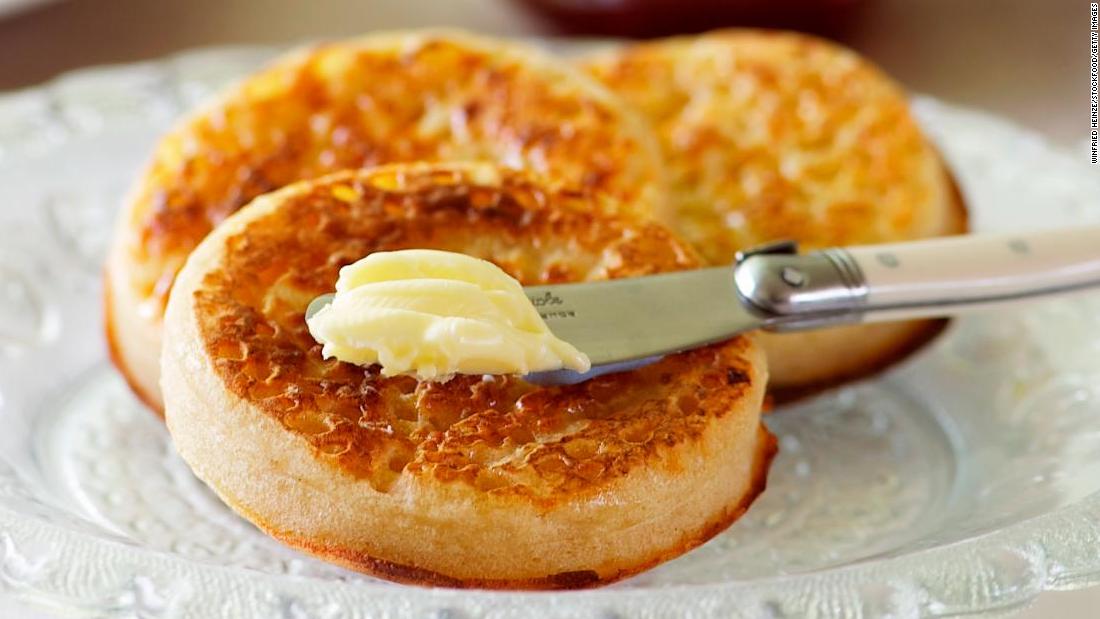
(CNN)British baking giant Warburton’s has been forced to pause production of crumpets at two of its factories amid the ongoing carbon dioxide (CO2) crisis.
Similar to English muffins, crumpets are a staple of the British breakfast table or afternoon tea — small savory griddle cakes that are toasted and doused in butter.
“As a result of the ongoing CO2 shortage, we are producing nowhere near the 1.5 million packs of crumpets we usually make each week and have had to suspend production at a number of our bakeries,” said Tearmh Taylor, corporate and consumer affairs manager at Warburtons.
“This will remain the case until the CO2 supply returns to normal. But, rest assured we are working really hard to keep our products on Britain’s shelves,” she said.
With the temporary halt, Warburton’s — which serves up around 10 million crumpets each week to UK shoppers — is presently operating at about 50% of regular production volume, the firm added.
Why did the bubbles burst?
The baker is the latest victim of the growing CO2 crisis that has greatly impacted food and drink production in the UK in recent weeks.
The bubbles that make beer and soda fizzy are actually byproducts from ammonia production used in fertilizer industry. Over the summer, several major ammonia plants in Europe have closed for maintenance, which in turn, sparked the shortage.
It is also used in meat production, product packaging and frozen food deliveries.
The problem has been exacerbated in the UK, where only one ammonia plant is operating normally. Food and drink industry groups expect the shortage to last a few more weeks at least.
Earlier this week, a major UK wholesaler announced it was rationing cases of beer to customers as the shortage continues.
The issue comes at an inopportune time as there is an increased demand in the country as England participates in the World Cup and the country experiences a prolonged period of glorious weather.
“We predicted we would pour 14 million extra pints of beer during the group stages of the World Cup,” Brigid Simmonds, CEO of the British Beer & Pub Association said, before continuing that England’s progression into the final 16 increased their projections by another 10 million pints.
“That’s worth £42 million to the UK economy,” she added.
Last week, Heineken warned some brands may not be available in Britain during the scarcity and Coca Cola warned that it had paused production on some lines but that supplies had not been affected yet.
Read more: www.cnn.com









![[Video] How to get rid of bed bugs in Toronto](https://www.thehowtozone.com/wp-content/uploads/2019/10/maxresdefault-2-100x70.jpg)


